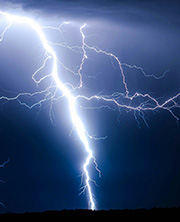
Earlier this week I got to be a guest on one of Third Sector’s regular podcasts, alongside the rather brilliant Emma Revie, the leader of food poverty charity Trussell.
Very few people like listening to their own recorded voice and I’m no exception, but skimming through the audio it sounded pretty good, and I commend it to you when it drops in a couple of weeks.
One thing I noticed though, is that we both kinda ducked one question, which was about “power sharing” and its importance for the work of social change.
I can’t speak for Emma, who’s own recent shift from CEO to co-CEO alongside her long-time deputy is, one might say, a textbook example.
And while I appreciate it’s a phrase that’s gained huge traction in the for-purpose sector, almost to the point of becoming established ideology, for my part I avoided it because I think it’s often misused and invariably misleading.
Misused, because I think we often kid ourselves. For example, a lot of funders are currently transitioning toward unrestricted grants, ostensibly to share power more equally with the recipients.
And don’t get me wrong, I think it’s a really good thing, but objectively, the funder still defines the purpose of the fund, the size of grants, how long they run for, who can apply; they set the criteria, the process, and the timeline. They make pretty much all the decisions except how the money gets spent.
It’s a little bit like parents and their kids’ pocket money, except nobody is under any illusion about where the power lies in that relationship. A harsh comparison perhaps, but maybe not entirely inaccurate.
More importantly though, the phrase “power sharing” is deeply misleading. It implies there’s a finite amount of power to be shared around. That somehow this is a zero-sum game.
That couldn’t be further from the truth.
To explain, let me break the concept of power down into some of its component parts, specifically: agency, autonomy, and resource.
Agency is our ability to act, to choose, to begin, to change things.
Autonomy is our ability to do all of that without being constrained by others.
And resource is what we use to put those actions into effect. That might be money or assets, skills or relationships, social standing, media profile, public support, whatever.
The more of those three things we have, or take, or create, the more powerful we become.
But here’s the thing. None of those three things are fixed.
Resource can be given or shared, but it can also be created and developed. If I teach you my skills, introduce you to my network, help you to get a better job, to raise your profile or status, I’m increasing your power without in any way diminishing my own.
It’s the same with agency and autonomy. Most of us already have far more of both than we realise – we just don’t use it, mostly out of conditioning and fear.
Indeed, one of the primary roles of an executive coach is to help people first discover, then build confidence in, their own agency and resourcefulness.
That’s why we need to start rethinking power; thinking differently about what we mean by it, and how we can sustainably develop it wherever it needs to be.
Because sharing limited resources, like money and buildings, makes sense. In a collaboration or partnership, sharing control or decision rights, goals or an agenda, that makes sense too.
But power is about so much more than that. Power can be created, just as it can be destroyed.
So please, let’s step beyond this simplistic, parent-child framing of how we “need to share power with others”, and start thinking much more intently about how we can help dramatically grow the power of both us and them.
Because that’s what’s really important for the work of social change.
